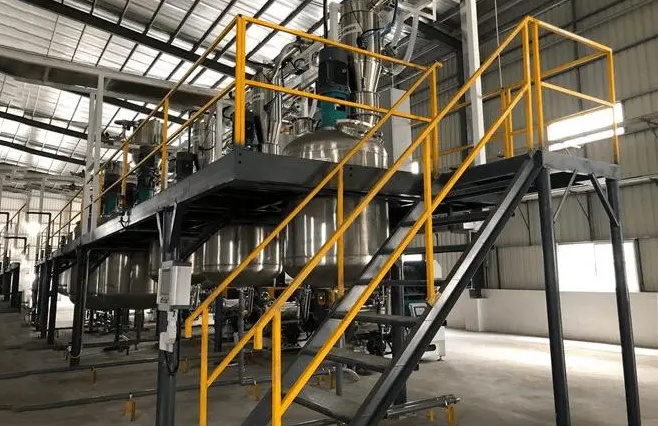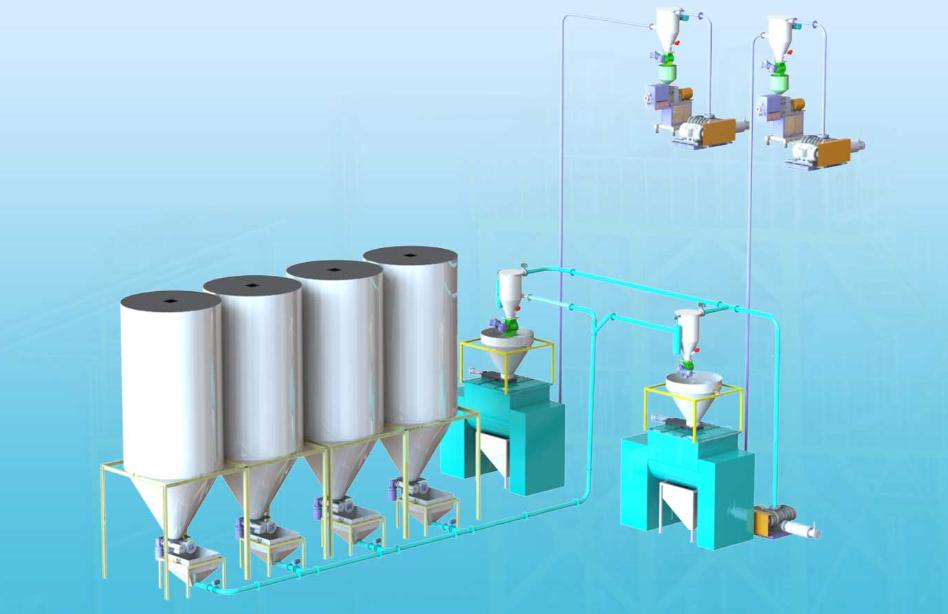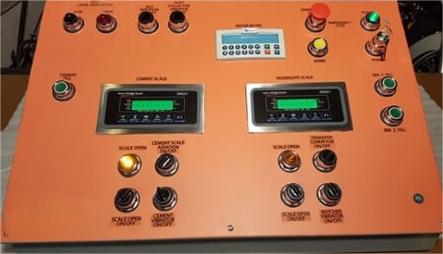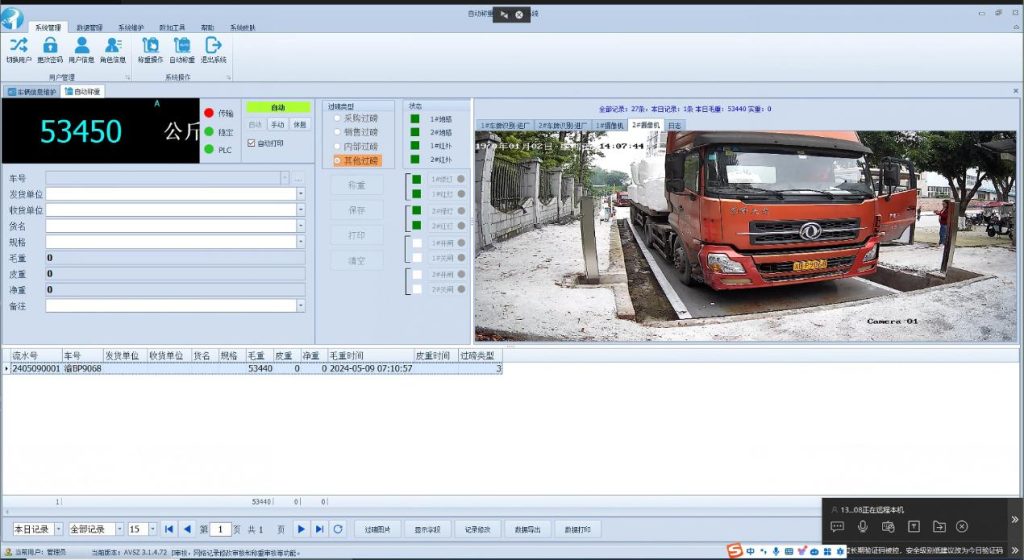A Guide to Batching Control Systems: Ensuring Efficiency and Safety
Many processes in today’s industrial landscape rely on the precise and efficient management of multiple steps, which brings us to batching control systems. These automated systems power a variety of industries, ensuring consistent product quality and efficient production for everything from pharmaceuticals to food and beverages. However, with such complex operations, ensuring the safety and dependability of batching control systems is critical. Bincen will introduce the various applications of batching control systems, discuss strategies for keeping them safe and reliable, and outline a comprehensive emergency fault handling plan. Understanding these critical aspects allows businesses to fully realize the potential of batching control systems while minimizing risks and increasing operational efficiency.
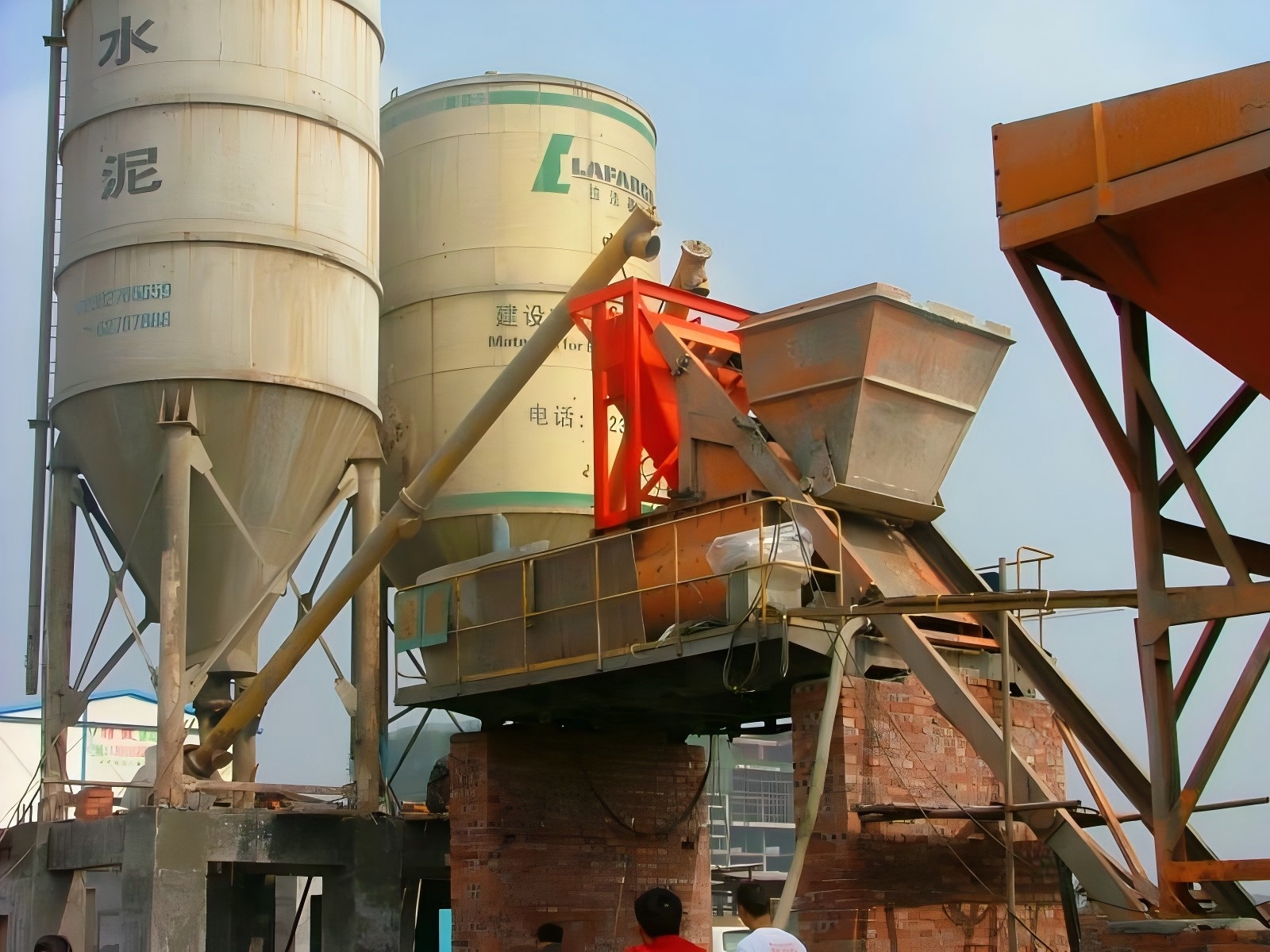
Application Fields of Batching Control Systems
Batching control systems (BCS) are automated systems for managing and controlling production batch operations. These systems are widely used in industries with multistep production processes, diverse raw materials, and frequent product variations. Here’s a comprehensive overview of BCS applications in various industries.
1. Pharmaceutical Industry
In the pharmaceutical industry, BCS is critical to ensuring the consistency and compliance of drug manufacturing processes. These systems contribute to the production of pharmaceuticals that meet high-quality standards by precisely controlling parameters such as temperature, pressure, and flow rates.
- Ensuring Drug Consistency: BCS meticulously monitors and regulates critical process parameters throughout the drug manufacturing process to ensure consistent production of high-quality pharmaceuticals with consistent properties and efficacy.
- Compliance with Regulatory Standards: BCS helps meet FDA and EMA regulations. By keeping detailed process records and audit trails, BCS helps pharmaceutical companies demonstrate compliance and meet regulatory requirements.
2. Food and Beverage Industry
BCS plays an important role in the food and beverage industry, overseeing and adjusting processes such as mixing, cooking, cooling, and packaging. This ensures product safety, consistent taste, and a longer shelf life.
- Product Safety Assurance: BCS monitors critical parameters such as temperature, pressure, and hygiene during food and beverage production to ensure product safety. This helps to reduce contamination, spoilage, and potential health risks.
- Consistent Taste and Texture: BCS ensures consistent product characteristics by precisely controlling variables such as mixing ratios, cooking times, and cooling temperatures. This ensures that each product has a consistent and enjoyable taste and texture.
- Extended Shelf Life: BCS optimizes packaging and storage parameters to maximize product shelf life, reduce waste, and maintain freshness throughout the supply chain.
3. Chemical Industry
Chemical production frequently necessitates strict control of reaction conditions. BCS effectively maintains these conditions throughout the manufacturing process, resulting in the production of stable, high-quality chemicals.
- Precise Control of Reaction Conditions: BCS meticulously monitors and regulates reaction parameters, including temperature, pressure, and catalyst dosages. This ensures optimal reaction conditions, resulting in chemicals with the desired properties and minimal impurities.
- Consistent Product Quality: BCS maintains consistent reaction conditions to produce chemicals with predictable performance and meet industrial specifications.
- Enhanced Process Safety: BCS uses safety interlocks and alarm systems to prevent hazardous conditions, protect workers, and reduce the risk of accidents and environmental incidents.
4. Biotechnology Industry
In bioreactors, BCS is critical for monitoring cell growth, metabolite production, and fermentation control, which is required for the production of antibodies, vaccines, and other biopharmaceuticals.
- Optimizing Cell Growth and Metabolism: BCS regulates environmental factors such as temperature, pH, and nutrient supply to promote cell growth and produce desired metabolites.
- Ensuring Fermentation Process Control: BCS precisely regulates fermentation parameters such as temperature, pressure, and agitation, resulting in consistent and high-quality biopharmaceuticals.
- Quality Control of Biopharmaceuticals: BCS enables stringent quality control measures throughout the biomanufacturing process, ensuring the purity, potency, and safety of biopharmaceuticals used in therapeutic or diagnostic applications.
5. Energy Industry
BCS improves fuel blending and combustion efficiency in fuel production and power generation, thereby increasing energy conversion efficiency and lowering pollution.
- Fuel Blending Optimization: BCS precisely controls the blending of various fuel sources based on their characteristics and desired combustion properties, resulting in maximum fuel efficiency and reduced emissions.
- Combustion Efficiency Enhancement: BCS monitors and adjusts combustion parameters such as air-fuel ratio and burner settings, maximizing energy production while reducing fuel consumption.
- Environmental Pollution Mitigation: BCS helps reduce emissions by optimizing combustion processes and minimizing the release of pollutants such as greenhouse gases and particulates.
6. Manufacturing Industry
BCS oversees processes such as casting, welding, painting, and assembly in the manufacture of automobiles, aerospace components, and electronic devices, ensuring product quality and manufacturing flexibility.
- Consistent Product Quality: BCS maintains consistent product quality by precisely controlling process variables such as temperature, pressure, and welding parameters. This ensures that the finished products meet the necessary specifications and performance standards.
- Manufacturing Flexibility: BCS promotes flexible manufacturing by allowing manufacturers to quickly adjust process parameters and production schedules in response to changing market demands and product requirements.
- Reduced Manufacturing Defects: BCS reduces manufacturing defects by monitoring process parameters and triggering alarms or corrective actions in the event of deviations, thereby reducing waste and increasing overall production efficiency.
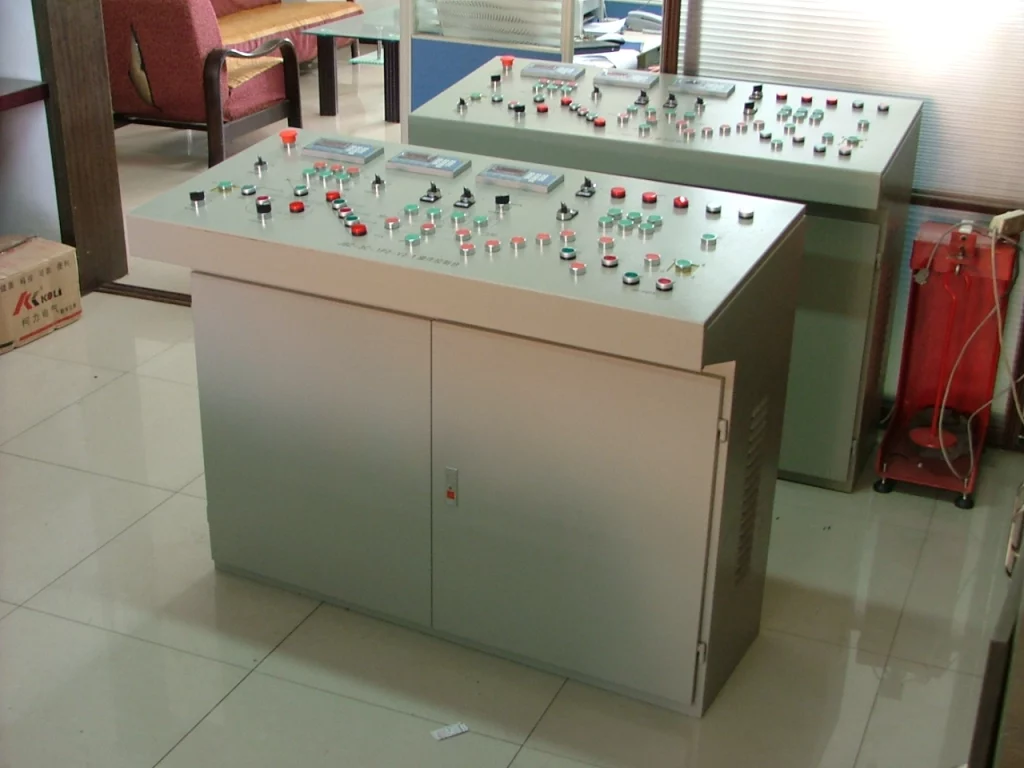
How to Ensure the Safety and Reliability of the Batching Control System?
Here are some key strategies to ensure the safety and reliability of a Batching Control System:
System Design and Development
- Risk Assessment: Conduct a thorough risk assessment to identify potential hazards related to the batch process and the BCS itself. This helps to prioritize safety features and reduce potential risks.
- Functional Safety Standards: Design the BCS in accordance with relevant functional safety standards, such as IEC 61508, to reduce the risk of failures and accidents.
- Redundancy and Fail-safe Design: Implement redundant components for critical functions (e.g., dual sensors, controllers) and fail-safe mechanisms to ensure the system enters a safe state in the event of component failure.
- Validation and Verification: Prior to full-scale deployment, thoroughly test and validate the BCS functionality using simulations and pilot runs. This ensures that the system performs as intended and meets safety standards.
Operation and Maintenance
- Operator Training: Give operators comprehensive training on safe BCS operation, including emergency procedures and response protocols.
- Maintenance Procedures: Develop a robust preventative maintenance program for the BCS. Sensor calibration, equipment checks, and software updates are all done on a regular basis to ensure optimal performance and prevent malfunctions.
- Change Management: Implement a formal change management process for any modifications to BCS hardware, software, or procedures. This reduces the possibility of introducing unintended consequences that could compromise safety.
- Data Security and Access Control: Enforce strong data security measures to safeguard sensitive process data and restrict system access. This prevents unauthorized modifications that may jeopardize safety.
Additional Considerations
- Cybersecurity: Implement cybersecurity measures to protect the BCS from cyberattacks and malware infections. This includes firewalls, intrusion detection systems, and safe network configurations.
- Alarm Management: Create an effective alarm system with clear and actionable notifications for operators. This enables a timely response to process deviations and potential safety issues.
- Audit Trails and Documentation: Maintain detailed audit trails for all batch operations and system modifications. This simplifies incident investigation and creates a record of system behavior for regulatory compliance.

Emergency Batching Control System Fault Handling Strategy
Immediate Activation of Emergency Response Plan: Follow the pre-established emergency operation procedures to quickly respond to the fault, activate system alarms, and report fault information to the maintenance team.
- Assess Fault Impact: Determine the fault’s specific impact on the manufacturing process, such as whether it affects product quality, production efficiency, or safety.
- Switch to Backup System: If the system design includes backup or redundant components, switch to them right away to ensure that the production process continues uninterrupted.
- Fault Diagnosis and Isolation: Perform fault diagnosis to determine the root cause of the problem and isolate the faulty component as soon as possible to prevent it from spreading.
- System Recovery: Once the fault has been identified and repaired, gradually return the system to normal operation and run the necessary tests to ensure system stability.
- Post-Incident Analysis: After the fault has been resolved, conduct a thorough post-incident analysis to determine the root cause of the problem and update the maintenance plan and operating procedures based on the findings.
- Update Emergency Response Plan: Update the emergency response plan based on previous fault handling experience to improve the ability to deal with similar faults in the future.
- Training and Drills: Organize training and drills to ensure that all operators and maintenance personnel are familiar with the emergency operation procedures and system recovery process.
- Communication and Record Keeping: Maintain communication with all relevant departments to ensure they are aware of the fault status and recovery progress, and keep detailed records of fault events and all measures taken.
Please note: Adjust the above steps according to the latest operation manual and company policies to ensure adherence to the most appropriate emergency handling procedures.
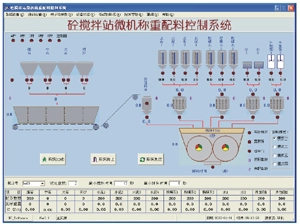
Conclusion
Batching control systems are undeniably transforming industries that rely on multi-step processes. Their ability to meticulously manage and control production improves consistency and efficiency while also paving the way for innovative product development. However, achieving optimal performance with a batching control system requires prioritizing safety and reliability. By implementing robust safeguards, establishing clear maintenance protocols, and having a well-defined emergency response plan in place, businesses can ensure their batching control system operates flawlessly, fostering a safe and productive production environment. With a thorough understanding of applications, safety measures, and fault-handling strategies, organizations can confidently unlock the full potential of batching control systems, propelling their operations toward sustained success. For more information please contact the professional weighing and batching control system supplier Bincen.

